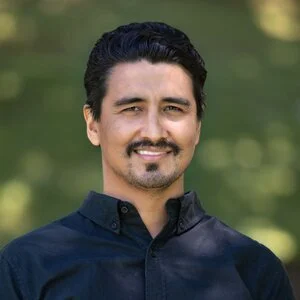
Diversity, Equity, Inclusion and Anti-racism.
DEIA and Planetary Health
We strive to maintain a learning environment that is safe and welcoming for our residents, faculty, staff and patients.
Our residency program recognizes that promoting equity, diversity, inclusion, and anti-racism is essential to the role of the family doctor.
“The only way to undo racism is to consistently identify and describe it—and then dismantle it.”
—Ibram X.Kendi
Our Diversity, Equity, Inclusion and Anti-racism Committee is a residency specific committee made up of residents, faculty and staff. We have been tasked with applying an equity lens to our program’s processes including, but not limited to:.
Curriculum
Recruitment
Evaluations
Faculty recruitment and development
Clinical operations and patient care
Resident experience
Dismantling institutional racism
SMART(IE) GOALS
To improve Diversity, Equity, Inclusion, and Antiracism throughout the program, all committees have SMARTIE goals:
Specific
Measurable
Achievable
Realistic
Timely
Inclusive
Equity Lens
Spotlight:
Fernando Polanco, M.Sc., MD
Hood River graduate 2023. Now practicing in British Columbia.
"I wanted to come to a residency program that valued my background in health policy and encouraged policy work throughout.
Starting PGY1, I was grateful to have been chosen to participate in the 'Oregon Policy Scholar Program' through the OAFP. With the help of OAFP leadership and its members, I created a resolution to address systemic racism imbedded in medicine. It passed at the state level and is on its way to be nationally recognized. Change is possible in residency and this program helped facilitate that."
Supporting the LGBTQIA+ Community
We have prioritized developing our gender affirming care commitment through the development of the Providence Gender Affirming Care Coalition which is a collaborative effort between clinicians, clinical leadership, pharmacy, and behavioral health to expand services and improve the care and patient experience of our gender diverse patients. We integrate gender affirming care (GAC) into primary care for our own patients. We also run a gender affirming care e-consult service to support primary care providers in the Providence system in delivering primary care to their own patient panels. We also will act as consultants and provide gender affirming care to Providence patients whose PCPs do not feel comfortable in providing GAC. Providence insurance plans have embedded care navigators focusing on helping transgender patients access services in the community such as laser hair removal, voice therapists, or queer friendly therapists. Oregon has laws that are very supportive of LGBTQIA+ communities. We recognize that developing clinical competency in gender affirming care is a foundational element of primary care education and strive to integrate inclusive, guideline-based, clinical teaching in gender affirming care across our curriculum.
*Coming soon: a new elective on LGBTQIA+ health!
Buoying Vulnerable Families
Dedicated in clinic case worker for pregnant and post-partum woman
Relationships with Early Intervention Clackamas Valley Early Childhood Division, Healthy Birth Initiatives Healthy Birth Initiative | Multnomah County (multco.us) and Black Parent Initiative Black Parent Initiative Organization Portland (thebpi.org)
Sacred Roots Doula program-matches culturally appropriate doulas to patients.
In clinic child and family psychologist and therapists
Lactation clinic to support new families
Anti-Racism in Pregnancy
Racism affects how people receive healthcare. Providence is engaged in the Team Steps program to help center births on patients and their goals. Here are some outstanding articles and videos challenging past medical assumptions that led to racism in medicine.
Promoting Social Justice through Clinical Practice
Our family medicine clinics are FQHC “Look Alike” clinics. We serve ethnically and socially diverse patient populations. We serve large BIPOC and immigrant communities. If you are bilingual in Spanish, Russian, Cantonese, Vietnamese or other languages, you are likely to be able to use those skills daily. In addition to other programs listed on this page we provide:
In person interpreters
In clinic social work and case management
Active support from clinical ethicists
Clinical care coordinators
Excellent access to behavioral health
It Matters and Project Nurture
Supporting At-Risk Populations:
“With overdose deaths surpassing 100,000 a year in the United States, more than doubling since 2015, addressing substance use disorder is obviously an urgent need - but it is a complex one that highlights the need to use a whole-person model to treatment, focusing on patient-driven wellness, and meeting patients where they are. Unfortunately, most patients with substance use disorder have significant trauma including the medical setting. Helping change how we provide care through innovative, multidisciplinary team-based programs like It Matters and Project Nurture, creating a safe space rather than a triggering one, is gratifying and motivating me as a family physician. Working with our patients and my colleagues is privilege that I honor.” Amelia Baker, MD, PhD, IBCLC, faculty member at our SE Clinic
We integrate substance use disorder (SUD) care into our clinics, inpatient, and obstetric services. There is also a SUD selective for those who wish to increase time learning about these topics.
Community Medicine Rotation
Family physicians care for the physical, social, and emotional health of patients of all ages within the context of families and communities. Our patients experience health and illness from diverse cultural and economic backgrounds and with wide ranging sets of social support systems. Understanding medicine from the lens of contextual care is one of the defining characteristics of a family doctor. In September all PGY1s spend a week together learning about social determinants of health, local community needs and resources, special populations, advocacy, and more. Each will also do a 3 week-block later in the year in which they visit and engage with community organizations and stakeholders, do home visits, and explore our diverse neighborhoods.
*Pictured here are some of our residents and faculty at our annual OAFP Hill Day
*All images on this page from murals around Portland, OR










